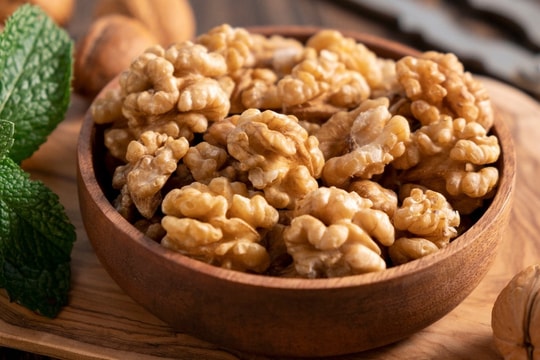6 foods that help the elderly stay healthy
Good nutrition can provide more energy and improve health, helping to reduce the risk of health problems in older adults.
As we age, we are more likely to experience changes in our appetite. Our bodies also absorb nutrients differently. By making healthy food choices and incorporating these 6 important foods into our senior diet, we can provide our bodies with the vitamins, minerals and nutrients they need to stay active and healthy, no matter what age.
1. 6 foods the elderly should eat to stay healthy
1.1Lean protein
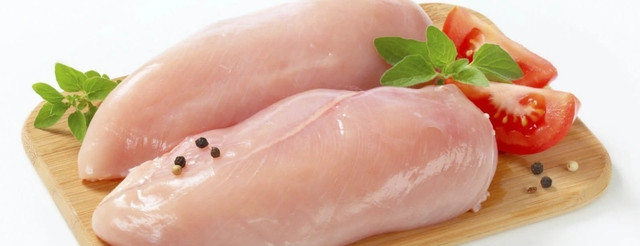
Protein provides more energy and helps maintain muscle mass and keep the body strong. Try to eat 2 to 3 portions of protein a day such as lean beef, lamb or pork; lean chicken or turkey; fresh, frozen or canned fish; eggs, beans, nuts and unsalted seeds.
1.2Fiber
The digestive system slows down as we age. Fiber is important for gut health. Fiber-rich foods improve digestion, help relieve constipation, and may even reduce the risk of diabetes and cancer. Fiber-rich foods include whole grains, brown rice, wholemeal bread, berries, vegetables, and potatoes with the skin on.
1.3Omega-3 fatty acids
Salmon, sardines, tuna, mackerel, flaxseeds, and soybeans are all rich in omega-3 fatty acids. These fatty acids help keep the body healthy as it ages by reducing or preventing inflammation. Omega-3 fatty acids may also slow macular degeneration and other vision problems. They are even good for the brain. They may help reduce the risk of Alzheimer's disease and keep the brain healthy.
1.4Calcium
Calcium is an important part of good nutrition. Bones naturally become more fragile with age, which is why older adults need more calcium. This mineral helps strengthen bones and reduce the risk of osteoporosis. Incorporate more calcium-rich foods into your daily diet by eating yogurt, cheese, milk, and dark green leafy vegetables.
1.5Iron
Anemia (low iron levels) is common in older adults and can cause low energy levels. If you feel tired, weak, lightheaded or lacking in energy, you may not be eating enough iron or it could be a symptom of another health problem, so it is important to get tested to determine if you have an iron deficiency.
Iron helps the blood carry more oxygen throughout the body and improves energy levels. Foods rich in iron, including lean meat, eggs, beans, lentils, dark green leafy vegetables (spinach), and fortified cereals, can help support energy in older adults and prevent anemia.
1.6 Vitamins and minerals
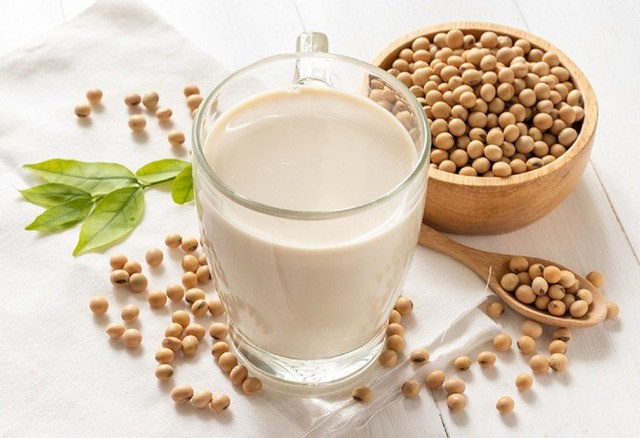
As we age, our bodies have a harder time absorbing vitamins and minerals, so we should eat more foods rich in the following nutrients:
Vitamin B12: B12 is a vitamin that is essential for high energy levels. Vitamin B12 helps the body produce red blood cells and keeps the nerves healthy. As we age, the body cannot absorb B12 as well, so it is important to eat enough foods that contain this vitamin. B12 is found in animal products, so it should be eaten in moderation. Good plant sources of B12 are plant milks such as soy milk and almond milk.
Vitamin C:Vitamin C aids in collagen production, which helps keep skin more elastic and less wrinkled. Foods rich in vitamin C include apples, oranges, strawberries, and tomatoes.
Vitamin D:Vitamin D can prevent calcium loss from bones and maintain bone density, which is especially important as we age. Good food sources of vitamin D include fish, fortified cereals, and milk. Your doctor may recommend getting more vitamin D from supplements or limiting your exposure to sunlight. Take a vitamin D supplement (15 mcg) daily.
Potassium:Potassium can lower blood pressure and promote heart health. Foods rich in potassium include bananas, prunes, dried apricots, and potatoes.
Magnesium: Magnesium is another important mineral that helps boost the immune system. Older adults have difficulty absorbing magnesium, so eat plenty of magnesium-rich foods such as whole grains, nuts, and green leafy vegetables.
Liquid:Dehydration is common in older people because they feel less thirsty as they age. Drinking enough fluids is important to help fight fatigue and get a good night's sleep. Energy-boosting fluids for older people include water, green tea, and the water found in fruits and vegetables.
2. Foods the elderly should avoid
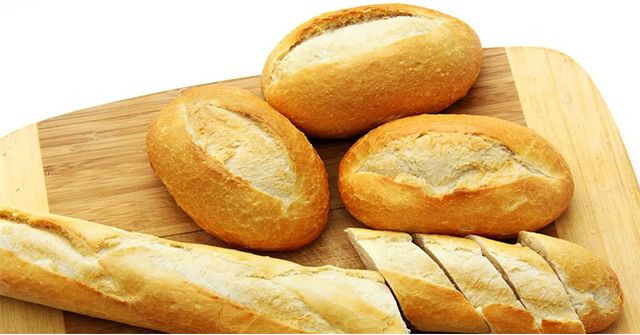
As we age, our metabolism begins to slow down. Since our bodies don't need as many calories as we age, it's important to choose healthy, whole, nutrient-dense foods for energy and avoid foods with low nutritional value, sugary foods, and processed foods.
Refined carbs:While complex carbs are great for keeping energy levels high, refined carbs are not. These are simple sugars and do not have the same minerals, vitamins, and fiber as complex carbs.
Refined carbs can cause blood sugar to spike and then crash. This crash then causes energy to drop, leaving you tired and sluggish. Refined carbs to avoid include white bread, white rice, crackers, sugary snacks, white flour, and cereals that are not made from whole grains.
Too many animal products: Eating animal products such as lean protein and low-fat dairy can be part of a healthy diet for older adults. However, it is important to eat animal products in moderation. Animal products often take longer to digest than plant-based foods, which reduces energy. Examples of animal products include meat, fish, eggs, etc.
3. Tips for the elderly to have a balanced diet
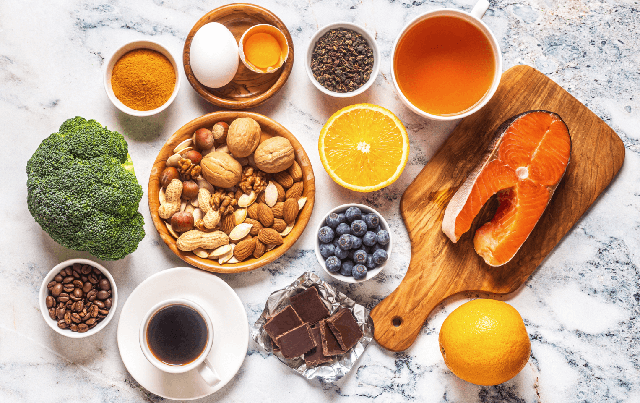
As you get older, you may find that you eat less because you are not as active as you once were. However, it is still important to eat three meals a day to maintain your energy and health. If you are not hungry, try eating three small, balanced meals with healthy snacks in between.
Starting your day with a nutritious breakfast is also important to maintain energy throughout the day. Try a breakfast that includes lean protein, whole grains, and fruit. Examples of good lean proteins to eat in the morning include eggs, cheese, and Greek yogurt.
Maintain a healthy weight by practicing a healthy lifestyle that includes eating a balanced diet, getting enough sleep, and managing stress.
Be active, aim for 10-15 minutes of activity several times a day, find ways to stay active and flexible.
By adding healthy foods to your meals, you can enjoy the health benefits of a balanced diet. And if you think you are not getting enough nutrients from the foods you eat, see a nutritionist to talk to your doctor about adding nutritional supplements to your daily diet.

